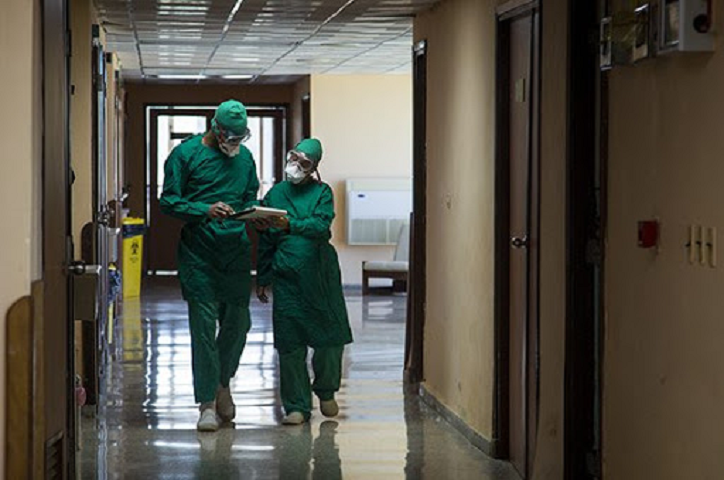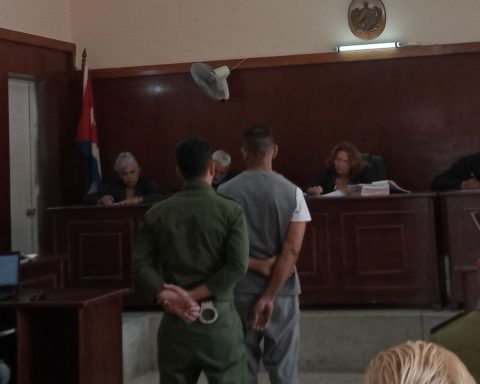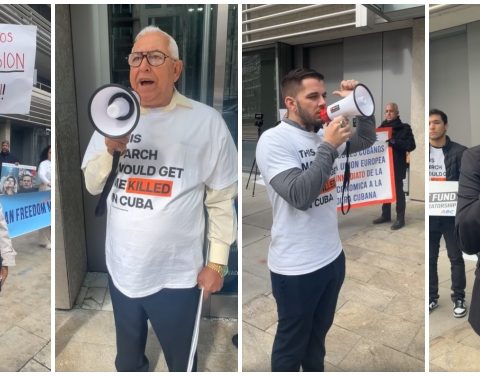SAN LUIS POTOSÍ, Mexico.- Dr. Miguel Ángel Ruano, president of the Free Cuban Medical Guild, addressed in an interview with CubaNet the serious epidemiological situation prevailing on the Island, ranked second in the Americas with the most cases of Oropouche, and denied the Cuban regime’s claims of the absence of deaths from the disease.
This Thursday, August 22, Ruano, in conversation with journalist Camila Acosta, stressed that several arboviruses converge in the country, and explained that relapses and deaths in patients with the Oropouche virus may be due, fundamentally, to poor treatment and the absence of drugs to treat the conditions.
“In this period there is no absence of deceasedthere is the presence of deaths due to acute febrile syndrome of unspecific cause or due to inadequate management in treatments that lead to death and that are handled in the death certificates as ‘fever of unknown cause’ that was not conclusive for diagnosis and therefore are not closed like Oropuche,” he said.
Added to this is the lack of specific monoserums to detect the disease at the Pedro Kourí Institute of Tropical Medicine.
This is an extremely complex context, he said in his speech, where he referred to the recent statements of Francisco Durán, national director of Hygiene and Epidemiology, who warned in official media that there are cases of Oropouche with up to three relapses in one month.
“There are bad treatments, slow evolution due to difficulties in terms of treatment or due to not giving accurate treatments,” said Ruano regarding relapsed patients. “On the other hand, it is possible that there may be reinfections, not necessarily unique to Oropuche.”
In this regard, he recalled that dengue, chikungunya and other infectious diseases are also circulating in Cuba. “Because today all of this is based on a fundamental fact, which is the amount of solid waste in the country.”
Official data
Given this reality and a health system where more than 264 basic items are missing from Cuban pharmacies and there are no specific monoserums to detect cases, Cuban authorities have only confirmed 400 cases and no deaths.
“There are no deaths among the 400 cases in which he performed monoserum tests at the IPK, because none of them died,” he said.
However, this does not imply the absence of deaths from the virus, as there are deaths from complications arising from the disease. regimeas it did during the coronavirus pandemic, does not add such deaths to the statistics.
“When patients died from complications derived from COVID itself, they reported it as other respiratory infections as the cause of death, also due to the absence of diagnostic elements or because they were not epidemiologically related to the epidemic. And this is totally unscientific because any acute febrile case that occurs today in Cuba or anywhere in the world in the middle of an epidemic must be correlated with the epidemic in question,” he said.
Meanwhile, the Cuban regime said it was placing at the service of the Pan American Health Organization (PAHO) and the countries of the region, its “technical capacity and experience in the production of medicines,” as well as in the development of “biotechnological products and vaccines, as well as the development achieved by the Center for State Control of Medicines, Equipment and Medical Devices (Cecmed).”
“This is an absolute challenge to human intelligence (…) when Cuba today has a total absence in the production of medicines for the control of chronic diseases and there is an absence of more than 264 basic items in Cuban pharmacies,” he said.
He added: “What does Cuba have to offer the world in terms of experience when it does not have raw materials to produce medicines due to lack of planning and non-payment to suppliers (…) When since 1992 Cuba has not produced a single psychotropic drug because there is no production chain…?”
It’s not the fault of the “blockade”
Ruano urged Cubans, first of all, not to believe that the deplorable hygiene and sanitary situation that exists has to do with the US embargo because “the US government approved the export, in the face of the health emergency in Cuba, both due to COVID and in this one, of an immense amount of money for the export of health and hygiene resources and, however, it only bought 0.01 percent.”
In this regard, he stressed that the lack of medicines is not related to the embargo but rather to the export of medicines, mainly to Mexico.
Given the lack of medicines, he recommended that as a preventive measure, people should stay away from garbage dumps, even if they are everywhere, “because the transmitting agent is there.”
He recalled the importance of drinking plenty of fluids and, in the presence of fever, using water compresses to keep the temperature from rising, and cold water baths, as alternative measures in the absence of antipyretics.
For joint pain associated with the symptoms of the disease, he suggested taking painkillers, but also ibuprofen and naproxen or non-steroidal anti-inflammatory drugs that can be obtained.
“Unfortunately, mosquitoes do not distinguish between religious beliefs, politics, ideology or the desire to party, celebrate, drink beer and enjoy carnivals. The mosquito bites you right there,” he concluded.














